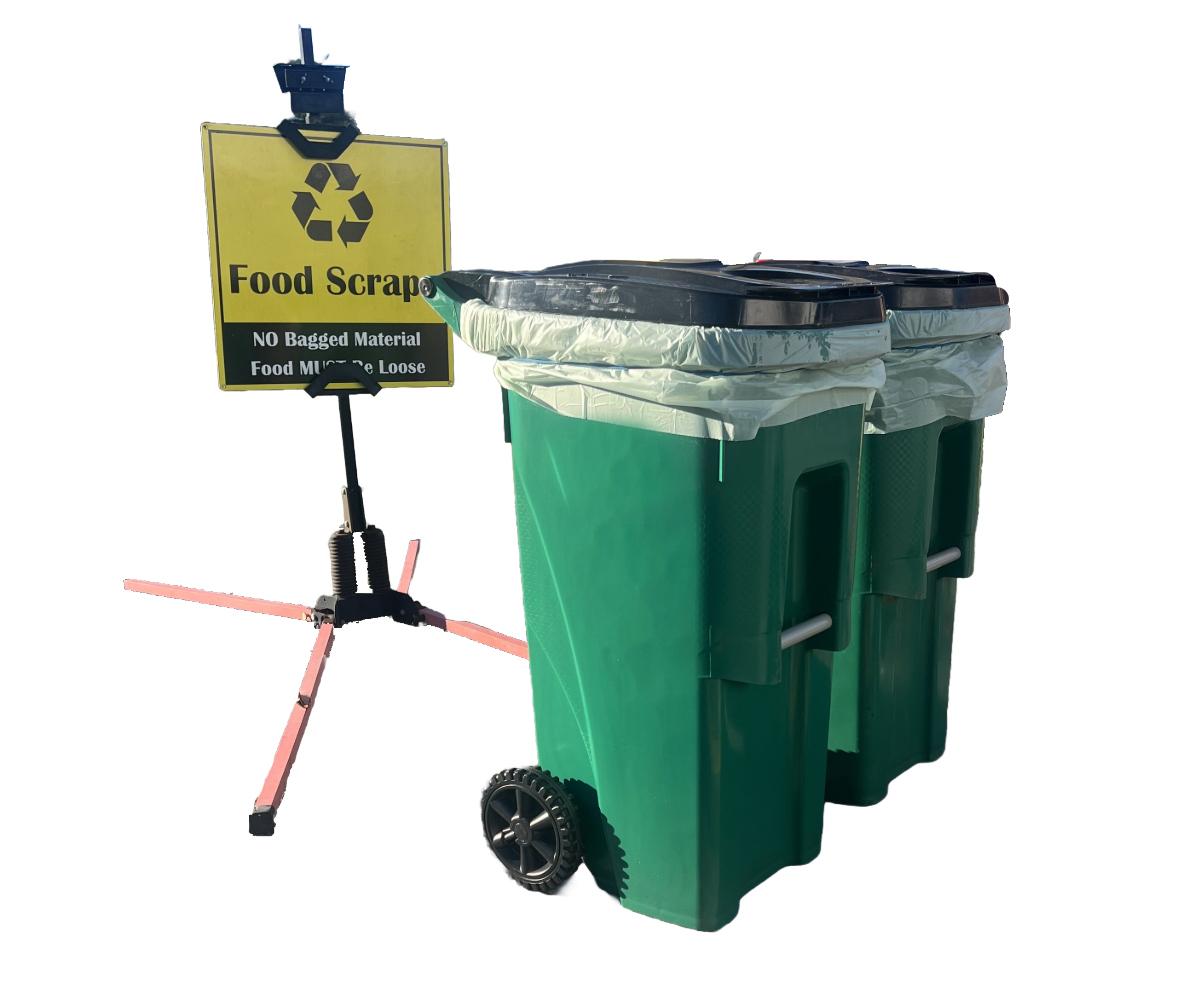Reduce waste and help make compost in three easy steps:
- Collect. A countertop compost bin is a great tool for this program. Chopping up scraps will help fit more food into your bin!
- Fill. Whenever your countertop container is full, empty it into a larger reusable container with a tight-fitted lid. A 5-gallon bucket works great!
- Drop-off. Empty your reusable container into the designated collection carts located at a County Recycling Center near you. Food scraps and food-soiled paper must be placed loosely in collection carts. Remember only food and food-soiled paper are allowed - no plastic, no metal, no glass.
Questions? Interested in a sticker for your collection bin? Call the Recycling Division at (410)222-7951
Anne Arundel County Waste Management Services does not provide curbside collection of separated food scraps materials. For a list of private companies that specialize in the curbside collection of food scraps and food-soiled paper materials please visit our Non-County Recycling Outlets page to find a company that provides curbside food scrap collection.
Businesses seeking food and organics recycling options should visit: MDRecycles.org Food Waste and Organics Recycling Resources
For more information on organics recycling and food residuals diversion in the state of Maryland please visit Maryland Department of the Environment.
Are you interested in giving backyard composting a try?
Backyard Composting kits are normally available for pickup (residential curbside customers only) at the Central Recycling Center, Southern Recycling Center, and the Recycling and Waste Reduction Division (restricted access-must call ahead to 410-222-7951). Kits are not available at the Northern Recycling Center. Click here for facility hours and locations.
Composting has several benefits:
- Prevents useful material from your yard and kitchen from being wasted in a landfill
- Reduces the amount of material being landfilled
- Reduces yard work and the expense of store bought soils and fertilizers
- Enhances the growth of flowers, vegetables, shrubs, and houseplants.
- Replaces nutrients in the soil, improves moisture retention, moderates temperatures, controls weeds, and decreases soil erosion



